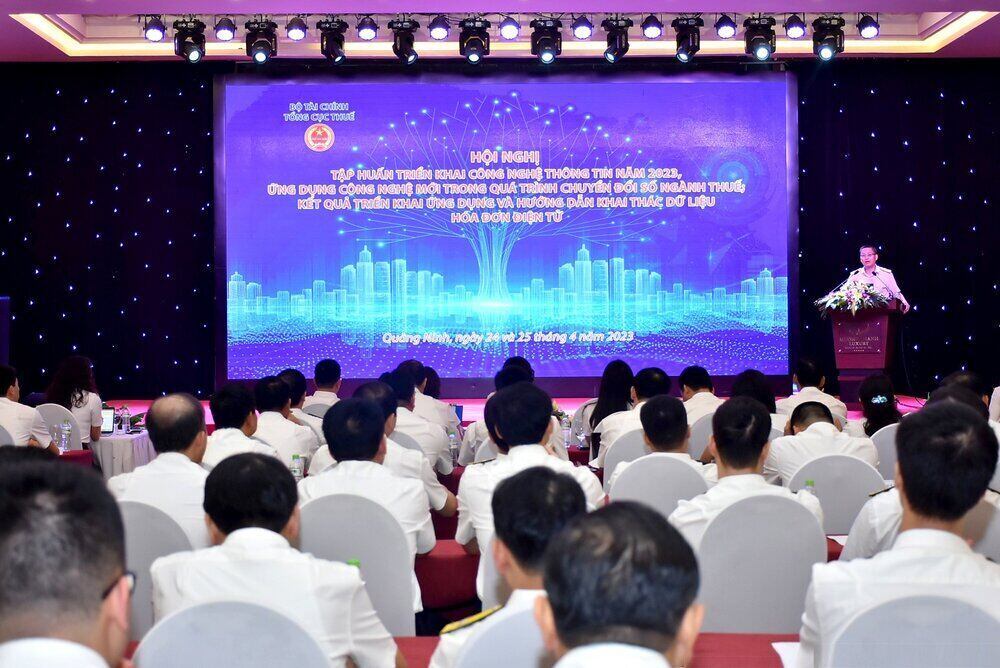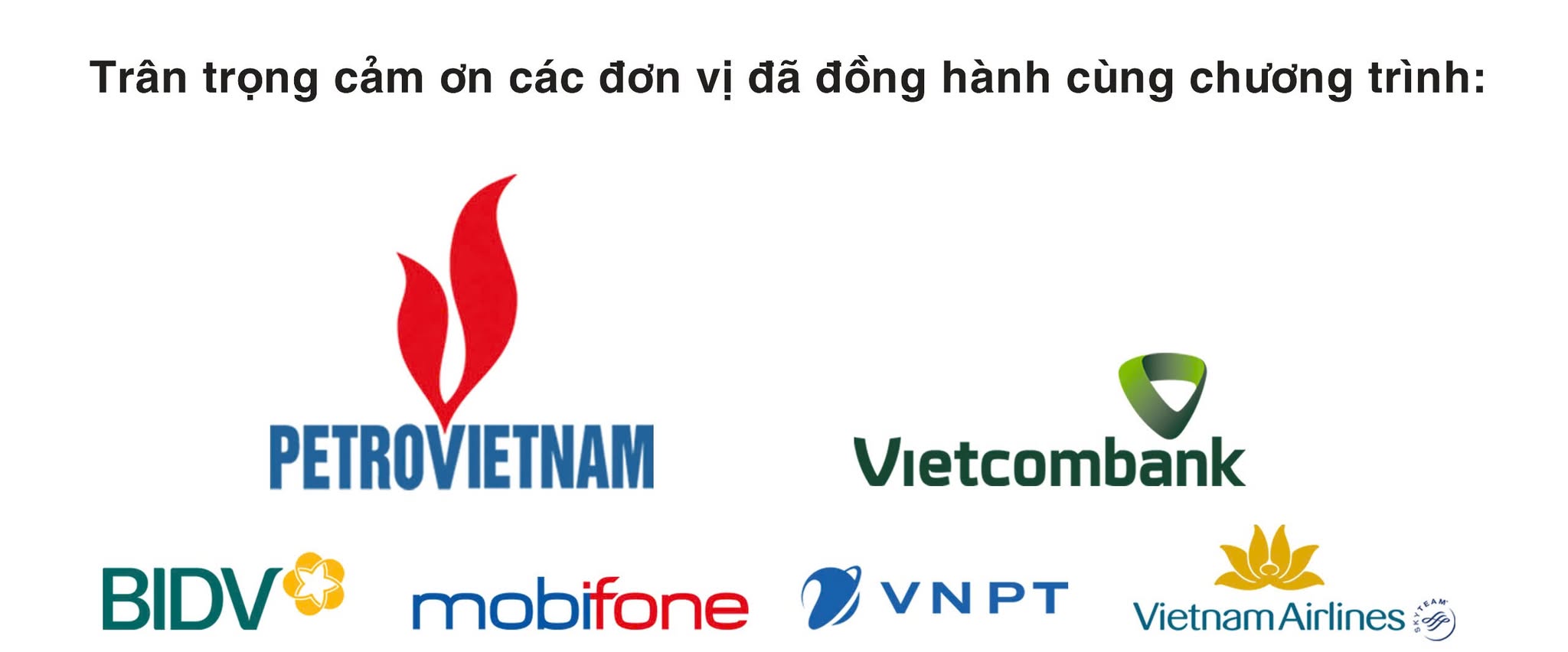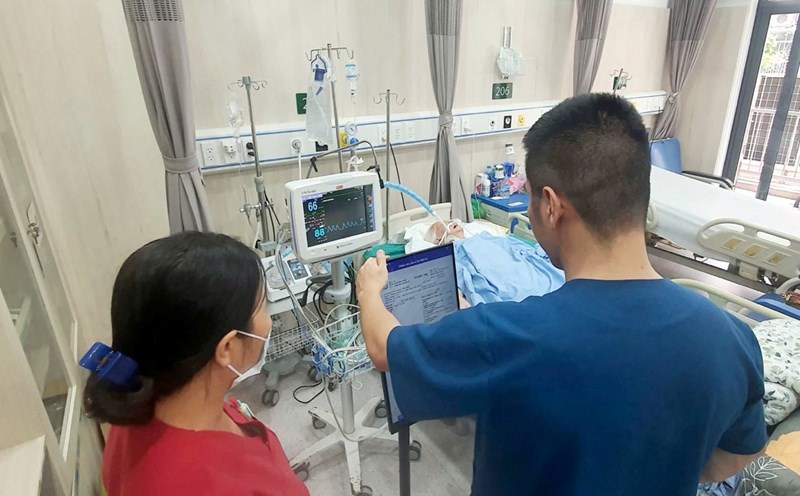In his speech sent to the Workshop, Associate Professor, Dr. Le Xuan Truong - Head of the Faculty of Taxation and Customs (Academy of Finance) said that state budget revenue is the basis for the state to carry out budget expenditure tasks, ensure the operation of the state apparatus and invest in infrastructure development, provide public services, and ensure national defense and security.
Budget collection is also the economic basis for realizing the socio-economic development strategy and medium-term and short-term socio-economic development plans.
State budget revenue must simultaneously ensure many requirements, both ensuring short-term revenue and long-term revenue. That is, ensuring sustainable state budget revenue, ensuring fairness in income regulation, and ensuring efficiency, including economic efficiency and socio-economic efficiency.
As for sustainable budget revenue, it is budget revenue that ensures the compatibility of revenue levels with the development level of the economy; ensures the compatibility of the proportion of revenue with the specific conditions of the socio-economy so as to ensure both current necessary spending needs and long-term necessary spending needs.
Overview of the current state of budget collection in recent years Assoc. Prof. Dr. Le Xuan Truong - Head of the Department of Taxation and Customs (Academy of Finance) said that in recent years, basically, the management of state budget collection, including domestic revenue and revenue from exported and imported goods, has met the requirements of sustainable budget collection as follows:
- In the period of 2011 - 2020, the scale of Vietnam's state budget revenue is increasingly expanded, the structure of state budget revenue is more sustainable, contributing to ensuring resources for the implementation of sustainable development goals. The scale of state budget revenue in the period of 2011 - 2020 is 3.8 times higher than that in the period of 2001 - 2010.
The average mobilization rate into the state budget in the period of 2011 - 2020 reached about 24.5% of GDP; in which, the period of 2011 - 2015 reached 23.6% of GDP, the period of 2016 - 2020 reached about 25.2% of GDP.
- Total state budget revenue in 2023 is estimated at 1,752.5 trillion VND, equal to 108.13% of the 2023 estimate (of which the central budget reaches 105.9% of the estimate; the local budget reaches 110.6% of the estimate), equal to 96.53% compared to the estimated implementation in 2022.
This revenue level has reached a mobilization rate into the state budget of about 17.14% of GDP (19.08% in 2022, 18.77% in 2021, 18.78% in 2020).
- The estimated state budget revenue structure in 2023 has changed quite a lot compared to the implementation in the period 2016 - 2023. In particular, the estimated state budget revenue structure in 2023 has changed quite clearly compared to the implementation in 2022 and compared to the 2023 estimate, that is, the proportion of domestic revenue has increased quite clearly to compensate for the decrease in the proportion of revenue from crude oil and import and export (for the implementation in 2022) and to compensate for the decrease in the proportion of revenue from import and export (for the 2023 estimate).
- Accumulated for 11 months of 2024, state budget revenue is estimated at 1,808.5 trillion VND, equivalent to 106.3% of the estimate, up 16.1% over the same period in 2023...
The above results on state budget revenue in recent years, especially in the last few years, come from the reasonable tax reform process identified in the strategies for reforming Vietnam's tax system in the 2001-2010 period, the 2011-2020 period and the first years of implementing tax reform according to the Tax System Reform Strategy to 2030, both in terms of tax policy reform and tax management reform, especially tax administrative procedure reform.
In particular, the 2020 - 2023 period, although affected by the COVID-19 pandemic, thanks to reasonable tax support policies (tax reduction, tax payment extension...), has supported economic recovery and development, thus creating a basis to ensure revenue for the State budget.
In terms of tax administration, in recent years, tax authorities have performed well their management functions, aiming at strictly implementing tax laws, promoting voluntary compliance, reducing tax compliance costs and preventing tax losses. Specifically as follows:
- Strengthen propaganda and support for taxpayers
Thereby, limiting and eliminating tax law violations due to taxpayers' lack of understanding. With such a motto, over the years, the Tax sector has carried out the task of propagating and supporting taxpayers and the community in many different forms.
Following that, support for taxpayers to declare and pay taxes electronically was started in 2013 and has now been basically applied to taxpayers who are enterprises.
In particular, electronic applications for tax declaration have been regularly upgraded in the direction of applying new architecture and technology, with many utilities, thus supporting taxpayers to make tax declarations conveniently and accurately.

- Do a good job of tax declaration management
Tax authorities at all levels have always focused on doing a good job of tax declaration management; have paid attention to inventorying and reviewing tax codes, ensuring timely control and understanding of taxpayers, to put them under tax monitoring and management.
Tax authorities at all levels have stepped up the urging of declarations and resolutely punished taxpayers for late submission of tax declarations. At the same time, they have focused on reviewing data on taxpayers' tax obligations to ensure the reduction of debts and incorrect overpayments; and updating and accounting for taxpayers' obligations correctly, completely and promptly.
- Innovation and modernization of tax inspection and examination work
In recent times, tax authorities at all levels have not only promoted tax inspection and examination but also focused on improving the effectiveness of tax inspection and examination by innovating methods and procedures for tax inspection and examination and applying modern technology to tax inspection and examination activities.
Tax inspection and examination is the field in which tax authorities have piloted risk management techniques (since 2008).
The results of tax inspection and examination are also reflected in the fact that tax authorities have stepped up the inspection of tax declaration records at tax authority headquarters.
- Improve the efficiency of tax debt management and tax debt enforcement
To improve tax debt management and tax debt enforcement, the General Department of Taxation has issued and completed the business process and assigned tax debt collection targets to local tax departments. Local tax agencies also assign targets to affiliated units and debt management officers.
- Strengthen invoice management and modernize invoice management
Recognizing the importance of invoice management, the Ministry of Finance has advised and directly issued legal documents on invoice management. In particular, the successful implementation of electronic invoices.
- Strengthen tax management for e-commerce and digital platform business activities
- Promote tax administrative procedure reform, facilitate taxpayers to comply with taxes
The Finance sector identifies the goal of tax administrative procedure reform as creating the most favorable conditions for taxpayers to fulfill their tax obligations, minimizing the time for tax procedures and tax compliance costs.
In recent years, the Tax sector has strongly implemented electronic tax procedures with special marks on the electronic information portal for foreign suppliers; electronic tax refund settlement; deploying the eTax Mobile application for individual taxpayers...
Regarding solutions to increase state budget revenue and ensure sustainable revenue sources, Associate Professor, Dr. Le Xuan Truong - Head of the Faculty of Taxation and Customs (Academy of Finance) said that in order to ensure sustainable state budget revenue in the coming time, it is necessary to promote the advantages of tax policies and tax management in recent years and continue to comprehensively innovate both management models, management methods and management technology. Specifically as follows:
Firstly, urgently and strictly implement the innovation and restructuring of the apparatus according to the direction of the Central Government to streamline the tax management apparatus. Combine innovation of the apparatus and staff with promoting digital transformation in tax management and reforming the tax management model, shifting from direct and decentralized processing to centralized data processing associated with regional tax agencies, replacing the current system of tax agencies associated with local authorities.
Second, promote digital transformation in tax management.
Third, reform the tax policy system, especially important tax policies, towards expanding the tax base, reducing the level of regulation, and amending tax incentives in the most reasonable way, consistent with the context of implementing global minimum tax to create conditions for the business sector to increase accumulation and invest in production and business development.
Fourth, continue to study the reduction of tax administrative procedures based on the application of information technology and information exchange between tax authorities and state agencies; further simplify tax declaration forms and dossiers.
Fifth, apply special measures to combat tax losses in specific areas.
Sixth, continue to innovate and improve the effectiveness of tax inspection and examination work.
Seventh, innovate to improve the utility of providing the system of tax legal documents and tax administrative procedures for taxpayers.











